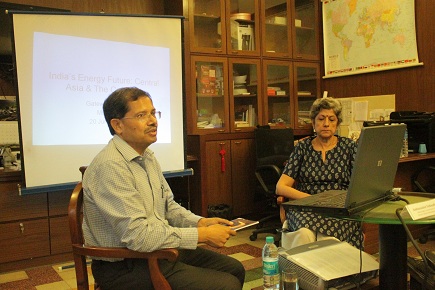
India is increasingly looking at Central Asia for new sources of energy, especially oil, uranium and shale gas. However, as Dr. Katherine Foshko, Gateway House’s Russia Fellow, reveals in her new paper India in Central Asia: Time for a New Strategy, India is already late to the game. Chinese and Russian presence is dwarfing other international efforts. How can India overcome its geographic and financial disadvantages to have better relations with the Central Asian countries? Do the implications of this dynamic extend to neighboring regions such as the Southern Caucus and West Asia? Will India be able to diversify its energy sources?
Gateway House: Indian Council on Global Relations hosted an interactive discussion with Ambassador Debnath Shaw, former Indian Ambassador to Azerbaijan and current Indian High Commissioner to Tanzania. Gateway House’s Ambassador Neelam Deo moderated the discussion on India’s Energy Future: Central Asia & the Caucuses.
“Much of the work has to be done bilaterally by India. However dependent these countries may be on the Russian giant to its north to lend them its political and economic clout in their developmental process, my experience in the region is that deep down in their hearts, they would like to be less dependent on the former mother country and prefer to deal with their partner countries without diktats from Moscow,” said Ambassador Shaw.
